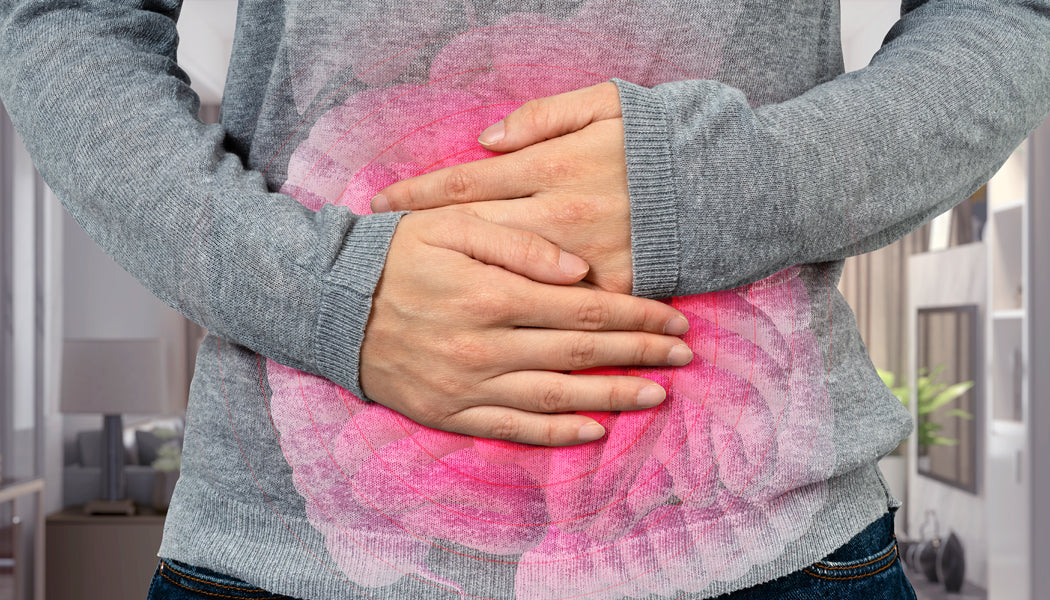
When we visit restaurants, it’s becoming increasingly common to see menus that highlight all sorts of choices based on dietary needs. There are symbols for vegetarian, gluten free, keto, or low fat meals just to name a few. But can you imagine a menu with choices labeled by male or female?
According to a study from The University of Texas at Austin, a man and woman can eat the same exact diet and their digestive tracts will react differently. That’s right – the same exact plate of food will be processed differently depending on your gender.
The scientists aren’t exactly sure why men and women have these different responses but it may explain why women are more prone to gut health issues than men.
What we do know is that the human body plays host to all sorts of bacteria, fungi, protozoa and viruses, most of which live in our gut. This microbial material is referred to as the human microbiome and is essential for growth, immunity and nutrition.
So if all humans have a helpful microbiome, why are women’s digestive tracts more sensitive?
Here are some of the leading causes being studied:
1. Hormones
This theory should surprise no one. It seems like hormones absolutely control the human body - just ask any teenager. For women, physicians believe increased levels of prostaglandin produced during menstruation slows digestion. Slower digestion can lead to bloating, constipation or diarrhea[2]. Furthermore, women produce far less testosterone than men. Testosterone supports and maintains muscle mass throughout the body, including the abdominal walls. The less testosterone produced, the weaker the stomach muscles, which can also result in more bloating.
2. Colon size
The female colon is approximately 10 cm longer than the male colon. While still under study, the thinking is that the female colon has to be longer so it can twist and turn itself around the uterus and ovaries. Another theory put forth by Dr. RobynneChutnik, an integrative gastroenterologist and founder of the Digestive Center for Women, is that during pregnancy, there’s an increase in the water and blood circulation. This retention of fluid may require the colon to have some extra length or what’s called redundancy. Unfortunately, that redundancy can lead to more bloating and constipation.
3. Slower digestion
The fact is women process food at a slower pace than men. A Mayo Clinic study showed that it actually took significantly longer for women to digest food than men - 33 hours for men versus 47 hours for women. Other studies suggest that there are gender differences in how the intestinal nerve cells communicate with the brain. This could possibly explain why women tend to experience more nausea and bloating and general gut sensitivities more frequently than men.
Additionally, of those who seek treatment, women are twice as likely to experience Inflammatory Bowel Syndrome[1]. IBS symptoms include diarrhea, constipation, abdominal pain and bloating typically triggered by certain foods, stress and anxiety.
While the exact cause of IBS is unknown, it is thought that a patient’s colon and immune system are more sensitive than someone with no symptoms.
So what can women do to help reduce gut sensitivity?
- Maintain a healthy lifestyle and eating plan. The Center for Disease Control Dietary Guidelines for Americans 2015-2020, recommends eating a balanced diet that includes plenty of fruits, vegetables, whole grains, beans, nuts, lean meats, fish and poultry
- Add plenty of fiber to your diet – Fiber is one of the single most important ingredients needed for digestive health due to its ability to promote regular bowel movements, and prevent constipation. The national recommended amount for women between the age of 18-50 years old is 25 grams a day and 21 grams for women 51+.
- Supplement with prebiotics and probiotics to stimulate the growth of healthy bacteria in the gut
- Reduce stress by exercising regularly, meditating and staying in touch with supportive friends and family
Basically, eat well, sleep well and exercise. When you take care of your gut, your gut will take care of you.
SOURCES:
https://www.ncbi.nlm.nih.gov/pmc/articles/PMC4527267/
https://www.theatlantic.com/health/archive/2013/10/what-we-eat-affects-everything/279922/
https://www.ncbi.nlm.nih.gov/pmc/articles/PMC6175559/

